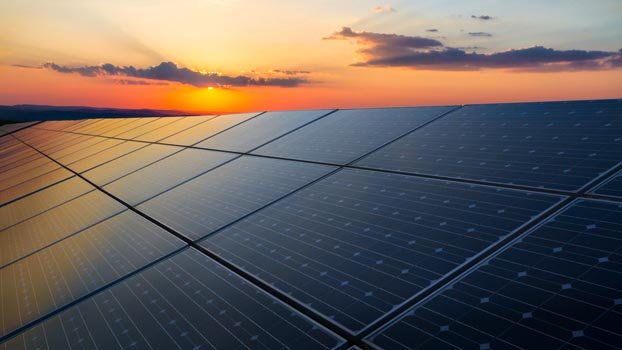Govt to buy surplus electricity from solar irrigation systems

The surplus electricity generated by solar irrigation systems would be purchased by the power distribution companies, a decision to this effect has been recently taken.
The Sustainable and Renewable Energy Development Authority (SREDA), under power division, has issued a guideline in this regard recently.
According to the guideline, the owners of solar irrigation projects could opt to sell the excess amount of electricity they produce from their solar irrigation systems. The national distribution company will pay the owners at a bulk rate of tariff for 33KV lines. However, when Bangladesh Energy Regulatory Commission changes the tariff, the rate of tariff is readjusted.
However, a pilot project has already been successfully run at Poradaho in Kushtia district. Bright Green Energy Foundation (BGEF) implemented the project supported by SREDA and UNDP. Solar E. Technology provided technical support of the project.
Asked, BGEF Chairman, Dipal C Barua told Bangladesh Post, “We have successfully implemented the country’s first grid integration of solar irrigation pump of our existing solar irrigation project with a capacity of 24.5 kilowatt (KW) in Kushtia on November 9. So far, around 7,700 units (Kilowatt Hour) of electricity has already been supplied to the grid within 9 months and should receive around taka 39,000 from the local power distribution company as cost of production.”
He said, “If we get support from the government, we can use our experiences of implementing the new system in more project areas.” Dipal, also President of Bangladesh Solar and Renewable Energy Association, said adding that it is a good initiative to promote the use of renewable energy. Under this system, both the consumers and the government will be benefited.
“It is not always necessary to irrigate the crop. But the solar system continues to generate electricity in the presence of sunlight. Ultimately, the electricity gets wasted during that time. Therefore, we can use this excess electricity for various purposes to get more commercial benefits of the Solar Irrigation System. However, these pump operators also require support to make the venture commercially viable,” he continued.
The project was commissioned by Ahmedul Kabir Upal, who is also directly involved with research and development project of renewable energy for the last 10 years. He told Bangladesh Post “We have successfully introduced the new system in the country. It’s a big achievement.”
“Normally, the solar pump is useless for around 6 month of the year after fulfilling the demands for irrigation. Since the government has issued a guide line for grid integration of solar irrigation pump, it is expected that with time this would get popularity.” he added.
Power Division officials said solar-based irrigation projects are innovative and environment-friendly solution to the agro-based economy of Bangladesh. The project is gaining popularity day by day. More than 1700 projects with total generation capacity of 45MW of electricity have already been installed. The government wants to go for more solar-based irrigation projects in an effort to prevent the negative impact on the environment and help the farmers as well.
Solar irrigation systems reduce dependency on fossil fuels and demand for electricity from the national grid during irrigation season. The programme also reduces carbon emission and at the same time saves millions in foreign currency.
State-owned Infrastructure Development Company Limited (IDCOL) has now set a target of installing 50,000 solar irrigation pumps by 2025, which consume almost 2 GWh of grid power each summer. Around 1.34 million diesel-powered devices consume $1 billion worth of fuel per year.
Some NGOs and private organisations are installing and supervising the pumps. The World Bank, KfW, GPOBA, JICA, USAID, ADB and BCCRF are supporting this initiative.
Power Division and IDCOL sources said, the government has initiated several initiatives to reduce agricultural costs. Solar Irrigation Pump costs less than one fourth of the cost of diesel pump for irrigation.
A solar pump can provide continuous irrigation water for more than 20 years. It’s run by sunlight. So, there is no fuel cost. The irrigation cost for 1 bigha land under solar pump is Tk 2,500 to Tk 3,000, which is less than 1,000 to 1,800 taka compared to that of the diesel pump.
According to officials at Sreda, the country currently has around 1.34 million diesel-operated irrigation pumps covering 3.4 million hectares of land. The government is aiming to replace these diesel-operated pumps with solar ones that will ensure 150MW of energy generation from the irrigation sector.
The entrepreneurs have to invest only 15 percent of the total cost of the Solar Irrigation Pump project. The IDCOL provides remaining 85 percent of the project cost. Of this, 50 percent will be provided in grants and 35 percent in simple-term loan at 6 percent interest which will have to be paid in 10 years.
Of late, the government has introduced the net-metering policy to buy electricity from the people’s rooftop solar system. Under the system, the people, who use electricity from the grid, can adjust their bills through an exchange arrangement by a special meter.



